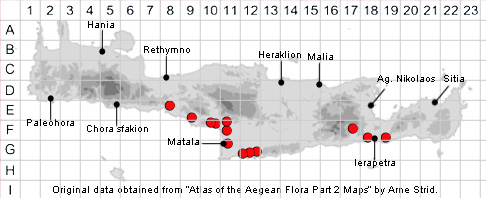SPECIES DESCRIPTION
GLAUCIUM CORNICULATUM
Family and Genus:- See- PAPAVERACEAE
Common Names:- Red horned-poppy
Homotypic Synonyms:- None
Meaning:- Glaucium (Gr) A name used by the Greek physician and botanist
Dioscorides for the colour of the latex which is grey-green.
Corniculatum (L) Having small horn- or spur-like appendages.
General description:- Glaucous annual herb, rarely biennial.
Stems:-
1) 10-35 cm tall.
Leaves:-
1) Lyrate-pinnatifid, with coarsely serrate segments, ± glaucous, sparsely pilose
a) basal, petiolate.
b) upper, sessile.
Flowers:-
1) Solitary, terminal or axillary.
2) Buds, nodding, ellipsoid to narrowly ovoid, pubescent.
3) Petals, up to 3(-4) cm, obovate, reddish or rarely yellow, usually with a blackish-
purple, yellow-margined blotch at the base.
4) Stamens, with dark
a) anthers, dark
b) filaments, yellow.
Fruit:-
1) Capsule linear, 9-20 cm, mostly appressed-pubescent.
Key features:-
1) Petals, 2-3 cm, orange or reddish.
2) Capsule, appressed-pubescent.
Habitat:- Margins of cultivated fields, roadsides, olive groves, occasionally in dry
open shrubby vegetation. 0-800 m.
Distribution:- Limited distribution in the Aegean, but a widespread species in the
Mediterranean region and beyond. On Crete confined to a coastal area east of
Ierapetra and a west central region on the south coast. Not common.
Flowering time:- Late Mar to early June.
Photos by:- Steve Lenton
